Tees Valley mayor election: Your questions
- Published

The mayor will represent the five council areas of the Tees Valley
On 4 May people will elect the first Tees Valley Mayor. Readers have been using your questions to ask about the new political position. Here are some of the things you wanted to know.

Why are we having a mayor?
The mayor will be the head of the Tees Valley Combined Authority, which is made up of Darlington, Hartlepool, Redcar and Cleveland, Middlesbrough and Stockton councils.
As part of the northern powerhouse, the government will devolve certain powers to the mayor and give them £15m a year to spend.
The mayor will in effect have three roles.
First, they will have direct control over issues such as adult skills and buses.
Secondly, there will be a more strategic role, making decisions which affect the wider region.
Finally, they will be an ambassador for the Tees Valley, who will attempt to attract companies and people to move to or visit the area.

Who are the candidates?
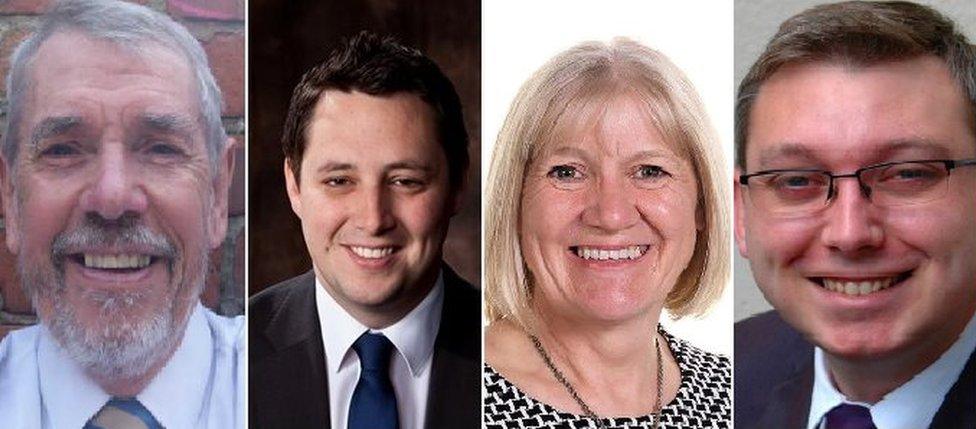
Chris Foote Wood, Ben Houchen, Sue Jeffrey and John Tennant are hoping to be the Tees Valley mayor
There are four people vying to be Tees Valley mayor.
They are, in alphabetical order by surname, Chris Foote Wood for the Liberal Democrats, Ben Houchen for the Conservatives, Labour's Sue Jeffrey and John Tennant from UKIP.
Each has been on BBC Tees this week outlining what they would do if they are elected.
'Build a bridge'
Chris Foote Wood said he would want to build a combined rail and road bridge across the River Tees enabling the creation of a metro system.
He said: "This bridge will be an icon of the Tees Valley's regeneration. It will be as famous as the San Francisco Golden Gate or Sydney Harbour bridge. Combine road and rail bridge."
'Buy the airport'
Ben Houchen said he had three things he would want to achieve.
He said: "I will buy Teesside airport and make sure we can make it great again.
"I will set up an independent commission looking into the structure of Cleveland Police because the structure of Cleveland Police has failed not only residents but also front line officers.
"Thirdly, we need an ambassador for Teesside, Darlington and Hartlepool that we haven't had before."
'Single strong voice'
Sue Jeffrey said she wants "more and better" jobs, transport and skills training.
Ms Jeffrey said: "I saw first hand the impact of [Redcar steelworks] closure, I never want that to happen again.
"I want our children and grandchildren to get good jobs locally.
"I want more and better transport, particularly buses, I want to see the Tees Valley properly connected.
"I want to create a single strong voice for the area that can't be ignored."
'Hold a referendum'
John Tennant said while housing, transport and job creation are "important", he would hold a referendum to ask people whether they even want a mayor.
He said: "I don't have any faith in this role, quite frankly it is just another layer of bureaucracy creating more politicians.
"I don't believe people out there want this."

What will the mayor actually do?
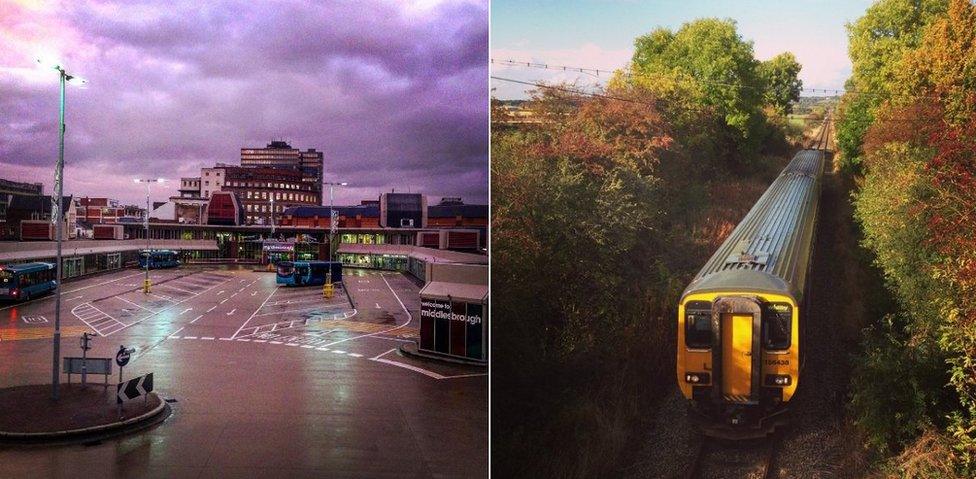
Transport will be one of the areas the mayor will be looking at
The mayor will be responsible for five key issues, namely:
Transport includes the improvement of rail and bus services and investment in roads while homes and communities involves increasing the number of "quality" homes in the area.
One big question people have been asking is about Durham Tees Valley Airport, and whether the mayor could make it bigger and better.
The answer is complicated. Ultimately, the airport is owned by a private company and the mayor's influence over that remains to be seen.
He or she will have direct control over adult skills, which could include creating new courses and promoting apprenticeships.
They will also be responsible for promoting the Tees Valley to tourists and businesses, attracting visitors to visit and companies to invest.

How much will it cost?
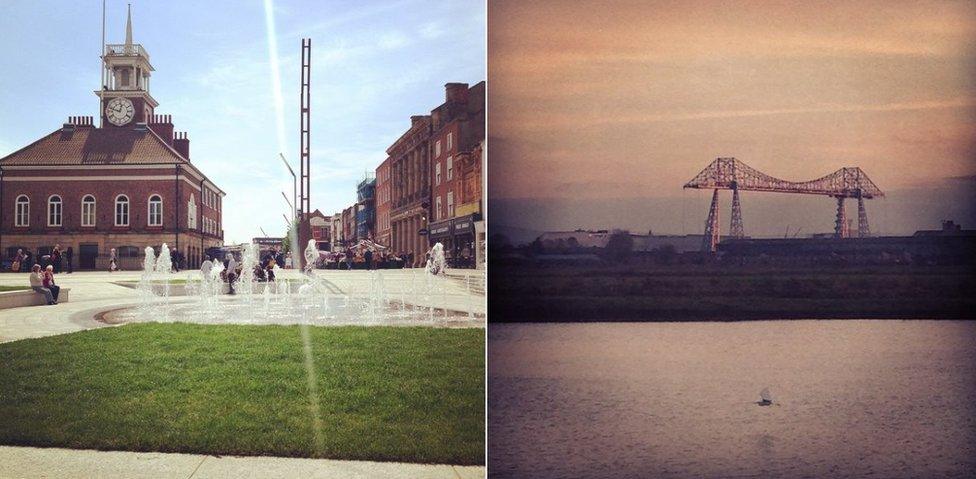
The mayor will want to attract tourists and businesses to the Tees Valley
The government will give the mayor £450m over 30 years to spend - that's £15m a year.
From that £15m will be drawn an allowance for the mayor which has been set by an "independent remuneration panel" to be an average of the five Tees Valley council leaders' allowances.
If calculated from the equivalent 2016-17 figures, their allowance would be £35,800.
A spokesman for the combined authority said other administration costs are "expected to be minimal" since the Mayor's work will be supported by the existing organisation.

Will this replace the existing councils?
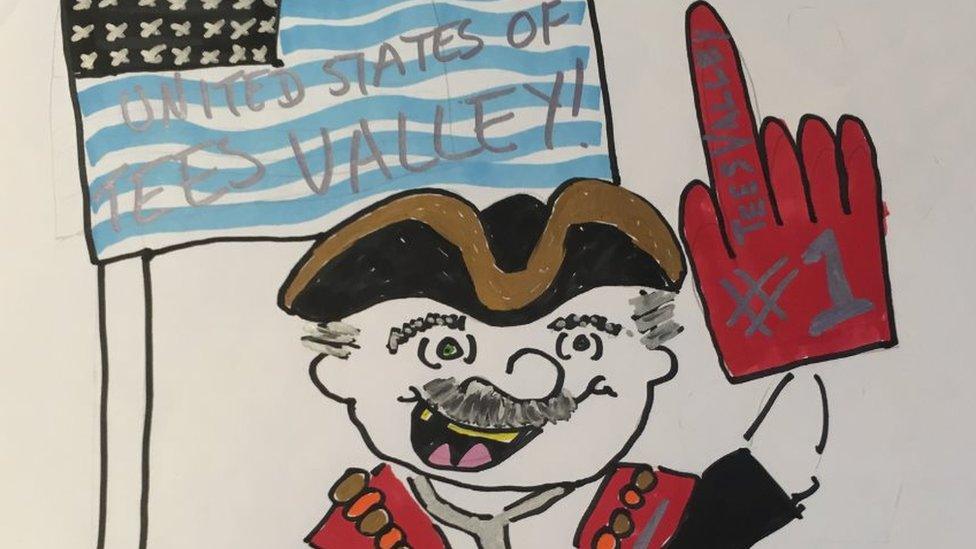
The mayor will be an ambassador for the Tees Valley area
No, each of the five councils will still be responsible for the same services they are currently running, such as bin collections and social care.
The mayor will be supported by a cabinet made up of the leaders of each council.
The combined authority was formed last April to better represent the area at a higher level.
- Published5 April 2017
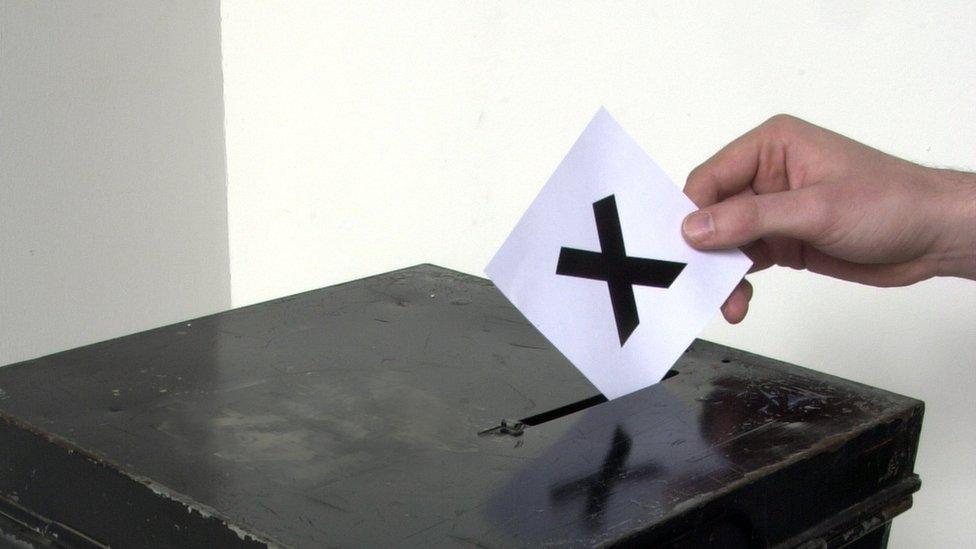
- Published29 March 2017
